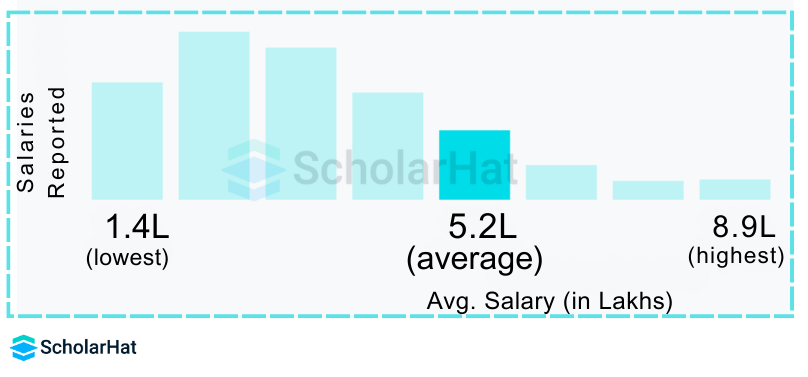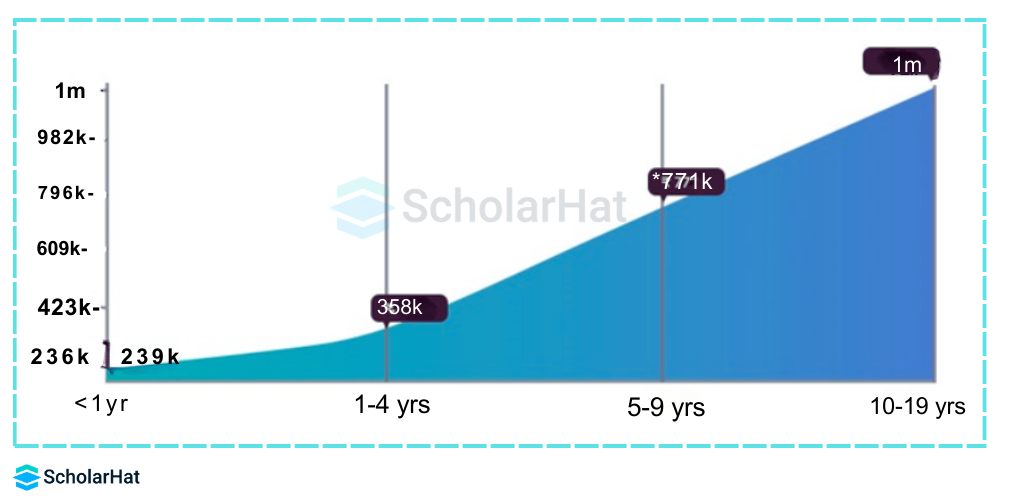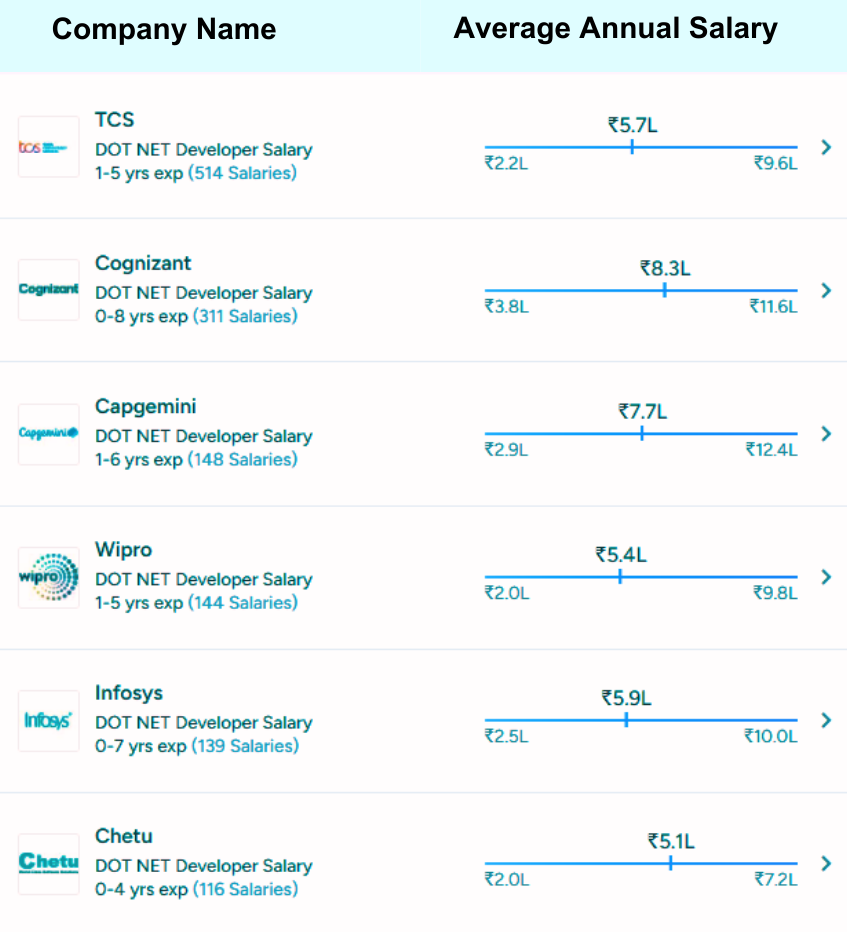18
Apr.Net Developer Salary 2025
What is .NET?
.NET is a free cross-platform software framework released in 2002 by Microsoft. Since its inception, it has been continually growing in popularity. This is because it provides a simple and safe approach to creating software. Moreover, it supports several programming languages, such as C#, F#, C++, Visual Basic, etc. It includes various tools, frameworks, and languages that allow .NET developers to create web, desktop, and mobile apps. It provides a runtime environment and a collection of libraries for building, deploying, and running applications on Windows.
| Read More: Top 50 .NET Interview Questions and Answers |
Isn't salary the first thing that comes into your mind when imagining a career in any field? It may seem confusing at first glance whether the career as a .NET developer is bright or not. When you go through the salary figures of the .NET developers, you will believe that your career as a .NET developer is bright. In this .NET tutorial, we'll analyze the salary figures of a .NET developer from all perspectives.
Who is a .NET Developer?
A .NET developer specializes in using the Microsoft .NET framework to build, deploy, and maintain software applications. The following are some of the job responsibilities of a .NET developer:
- Building user interfaces
- Troubleshooting software prototypes
- Providing technical support to users
- Developing programs for .NET applications
- Creating procedures for running the applications
.Net Developer Salary: How Much Are They Paid?
So, when you decide to start your career as a .Net Developer, you need to know the Salary Structure for this role in the industry.
The average salary of a .NET developer in the United States is $68,571 per year, while the average annual salary of a .NET Developer in India is Rs. 5.2 LPA.

There are some factors on which the salary of a .NET Developer depends:
1. Experience
As applicable in any job, the more the number of experience, the higher the salary range. This is because the years of experience denote the good and bad phases you have perceived while working in a particular field.

Data Source: https://www.payscale.com/research/IN/Job=.NET_Software_Developer_%2F_Programmer/Salary
2. SkillSet
Skills obviously play a vital role in determining the salary of a .NET developer. Important skills a .NET developer should be equipped with are C#, the ASP.NET framework, Microsoft SQL Server, .NET Core, and Bootstrap.
| Read More: Top 50 .NET Core Interview Questions and Answers 2024 |
| Skill Set | Average Base Pay/annum (In INR) |
| C# | ₹448,978 |
| Microsoft SQL Server | ₹435,032 |
| ASP.Net Framework | ₹422,328 |
| Bootstrap | ₹500,000 |
| .Net Core | ₹685,000 |
Data Source: https://www.payscale.com/research/IN/Job=.NET_Software_Developer_%2F_Programmer/Salary
| ScholarHat offers you the following Certifications where you will work on building real-world projects and enhance your skillset: |
3. Employer

Data Source: https://www.ambitionbox.com/profile/dot-net-developer-salary
4. Location
Experience, skills, and employer are not the only influencing factors for a .NET developer. Another prominent factor is location. Different cities have different demands for job roles, varied costs of living, and many other aspects. So, location is a significant factor to consider.
| Location | Average Base Salary/year (In INR) |
| Delhi | ₹439,162 |
| Mumbai | ₹428,674 |
| Kolkata | ₹338,000 |
| Hyderabad | ₹415,746 |
| Banglore | ₹597,475 |
Data Source: https://www.payscale.com/research/IN/Job=.NET_Software_Developer_%2F_Programmer/Salary
What is the Demand for this Role?
The demand for .NET developers remains consistently high in the software development industry, due to several factors:
- Enterprise Adoption: Many large enterprises and organizations rely on .NET for building mission-critical applications hence, there is a continuous demand for skilled .NET developers to maintain, enhance, and develop new solutions within these environments.
- Legacy Systems Maintenance: Numerous legacy systems and applications are built on the .NET framework. These systems require ongoing support, updates, and modernization efforts, creating a demand for .NET developers with expertise in maintaining and migrating legacy applications.
- Web and Cloud Development: With the rise of cloud computing and modern web development practices, there is an increasing demand for .NET developers skilled in ASP.NET Core, Azure, and other cloud-native technologies.
- Cross-Platform Development: .NET developers can now build cross-platform applications that run on Windows, Linux, and macOS, as well as mobile applications with Xamarin. This versatility has increased the demand for .NET developers with cross-platform development skills.
- Emerging Technologies: .NET continues to evolve, embracing emerging technologies such as machine learning, IoT, etc. As organizations explore these technologies to gain a competitive edge, there is a growing demand for .NET developers with expertise in integrating and leveraging these technologies within their applications.
- Market Dynamics and Job Trends: Job market data and trends consistently show a strong demand for .NET developers across various industries and geographic regions. Job boards, recruitment agencies, and industry reports often highlight .NET development roles among the most sought-after positions in the software development industry.
| Also Read: |
FAQs
- Using .NET infrastructure to create software solutions to meet the customer's requirements
- Collaborating with internal teams to produce software architecture and design
- Organizing meetings with the clients to discuss the project details
- Writing code aligning with the customer's brief and requirements
- Preparing and maintaining code for various .NET applications and resolving defects in systems
- Ensuring error-free code, adhering to the coding and development best practices
- Project Managers
- Business Analysts
- UI/UX Designers
- Database Administrators (DBAs)
- Quality Assurance (QA) Engineers
- System Administrators
- .NET Framework and .NET Core
- ASP.NET and ASP.NET Core
- Frameworks like Windows Forms and WPF (Windows Presentation Foundation)
- SQL Server, MySQL, PostgreSQL, or SQLite
- Testing and Debugging
- Deployment and DevOps







